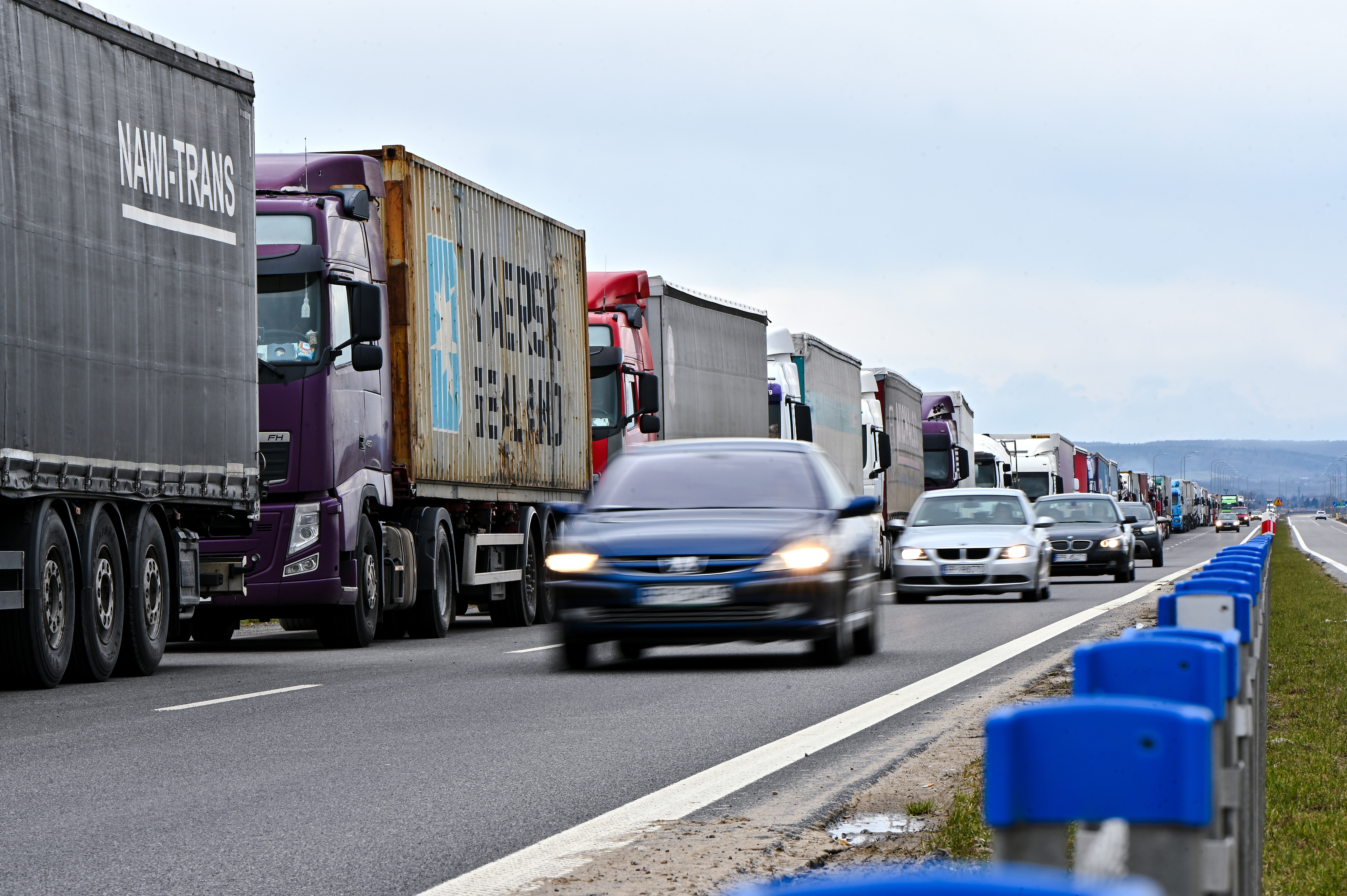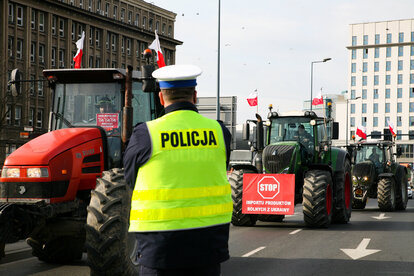Trade policy
All lively on the Western front: the difficult situation of Ukrainian logisticians

Lorries belonging to Ukrainian hauliers remain blocked at the border crossing on the Ukrainian-Polish border, Lviv region, western Ukraine.
© picture alliance / Photoshot | -For more than two years, war has raged in Ukraine. For more than two years, the people of Ukraine have been awakened at night by bomb alarms, losing their homes, their jobs, their shopping - and their loved ones. The war has brought endless suffering to Ukraine and its people. The direct consequences described above dwarf the indirect ones, of course. But they also have a massive impact on the lives of Ukrainians.
Among the indirect consequences of the war are the new trade routes that must now be found. Before the Russian invasion, Ukraine was a major exporter of agricultural and food products, as well as raw materials and refined products. Goods that depend on a favorable transportation and storage infrastructure. Both are no longer guaranteed as a result of the war. Russia's bombing campaign permanently endangers trade and storage facilities and the energy infrastructure to at least the same extent. The latter is essential for all goods that need to be cooled, dried or processed in order to be traded. In short, process chains have begun to falter and need to be rethought
Dairy industry example
Ukrainian dairies and milk processors are symbolically fighting on two fronts. On the one hand, they are mourning the loss of life in their own country, dealing with the destruction of infrastructure and livestock, and coping with shortages caused by power outages and fuel shortages. On the other hand, logisticians and exporters are facing new challenges in foreign trade. For example, the more or less permeable naval blockade of the Black Sea - undoubtedly a security challenge. At the same time, however, there are diplomatic bottlenecks, especially on the country's western borders.
Accelerated European Integration
The easing of trade barriers with Europe has been a lifeline for Ukrainian dairy exports to EU markets. More than 50 processing plants now have an EU export license: An important milestone! However, adopting European standards is a major challenge, as it requires the adoption of some 3,000 EU directives, particularly in the areas of food safety and agriculture. For representatives of the Ukrainian dairy industry, there is no question that modernization to meet these standards is essential for competitive access to new markets. But the already daunting task of transition is complicated by war and insecurity.
Logistical Challenges and Border Blockades
The ongoing border blockades with Poland are a further blow to an industry that is already struggling with disrupted supply chains and rising transportation costs. This applies to all types of products, but dairy products are particularly perishable. Even the shortest interruptions in the cold chain lead to a complete loss of value. For example, traffic jams at border crossings between Ukraine and its western neighbors, sometimes lasting for days, have already caused thousands of liters of dairy products to spoil. The reason: the refrigeration units were not allowed to run any longer because otherwise there would have been no fuel for the onward journey. In addition to the administrative and bureaucratic hurdles in neighboring countries, there is now also resistance from local farmers and food companies. One of the reasons is as simple as it is understandable: the supply of Ukrainian goods weakens the local market position and reduces their own income. Additionally, Polish farmers, as elsewhere in Europe, are dissatisfied with the nagging and requirements of the national and European agricultural authorities and are also engaged in political trench warfare. As a result, there are repeated mass protests and attacks at the borders by angry farmers who fear for their future.

Farmers block the road around the Mogilskie roundabout during the nationwide general strike in Krakow, Poland, on 20 March 2024.
© picture alliance / NurPhoto | Klaudia RadeckaEU agricultural regulations
Against this backdrop, the Polish government has now asked the EU to temporarily suspend agricultural regulations for Polish farmers. It is hardly economically possible to compete with Ukrainian products to which these regulations do not or only partially apply. Given the already tense political situation regarding the Common European Agricultural Policy and the continued resistance of farmers to further tightening, the Commission finds itself in a dilemma. Against this backdrop, there is hope in Europe that the next reform of the Common Agricultural Policy will focus less on small-scale regulation and more on a market-based approach.
EU Foreign Policy
The damaged relations between the EU, the affected member states and Ukraine need to be sustainably strengthened. More cohesion and cooperation are needed - anything else only indirectly strengthens the aggressor in the Kremlin. Against this backdrop, a rapid and, above all, sustainable solution at the borders is of the utmost importance.

